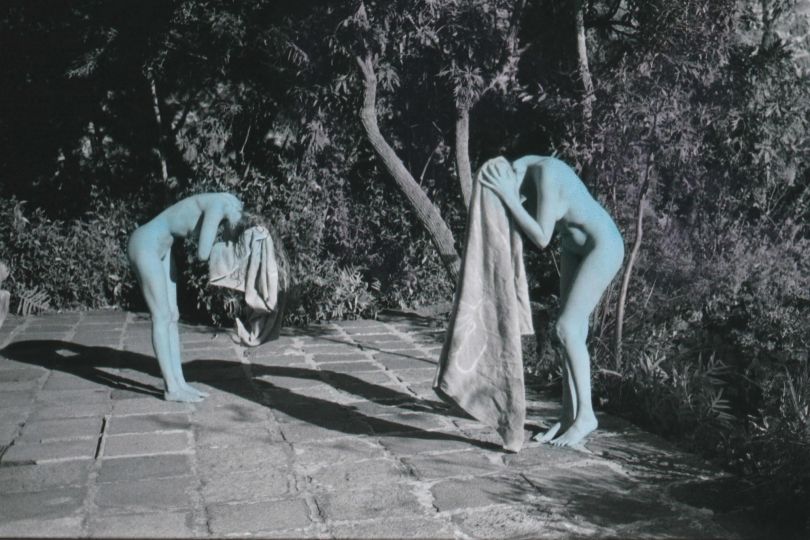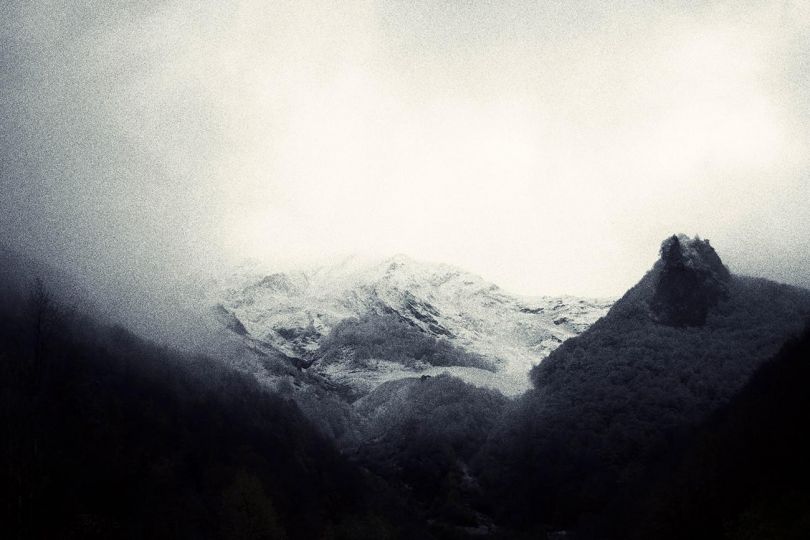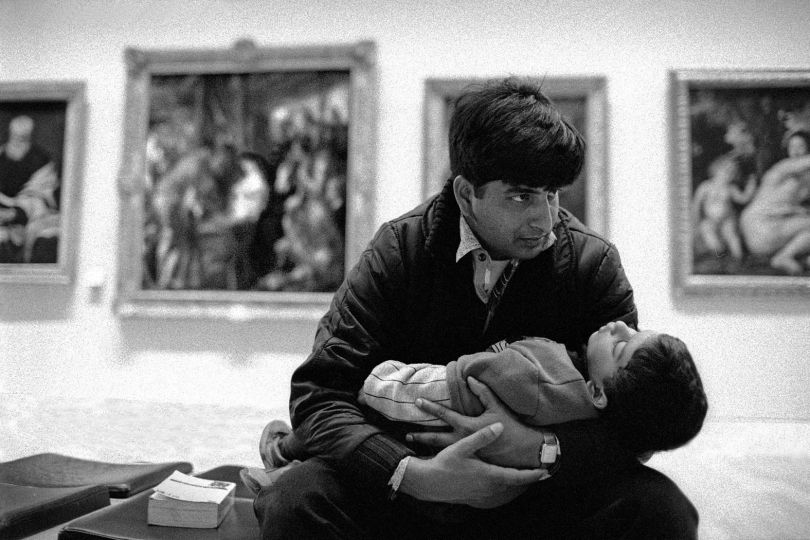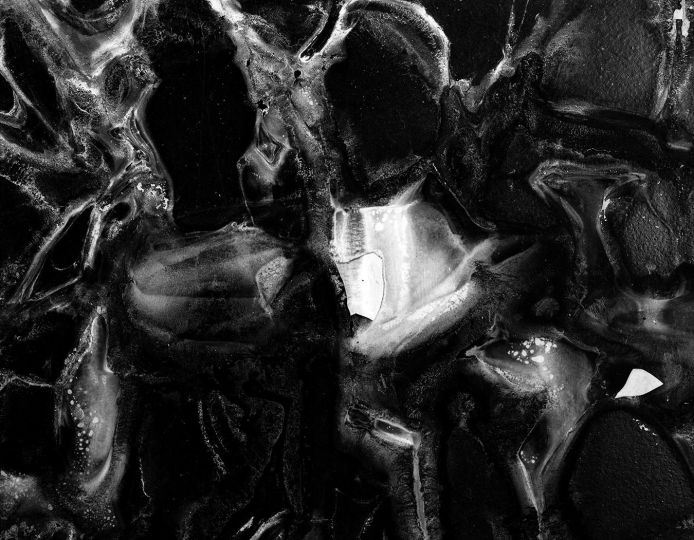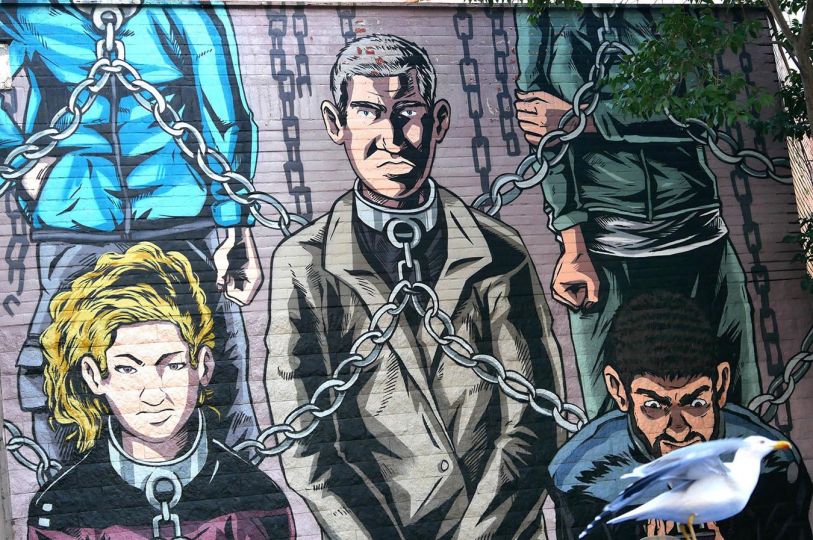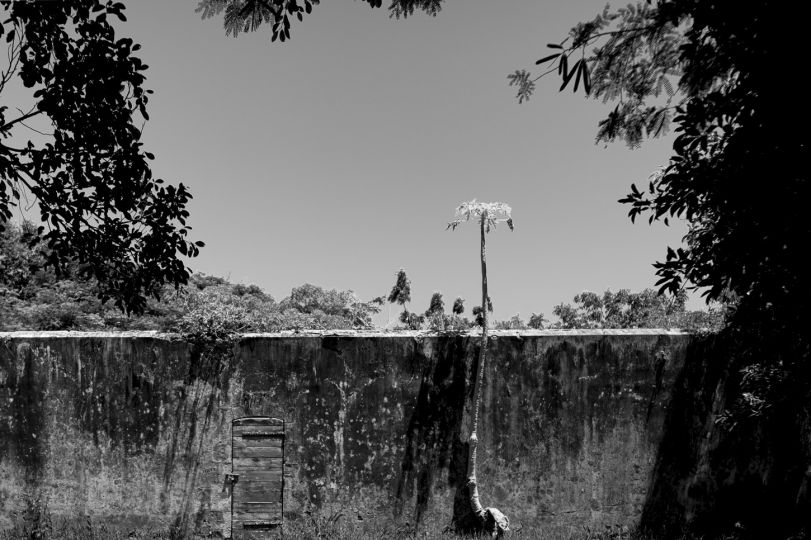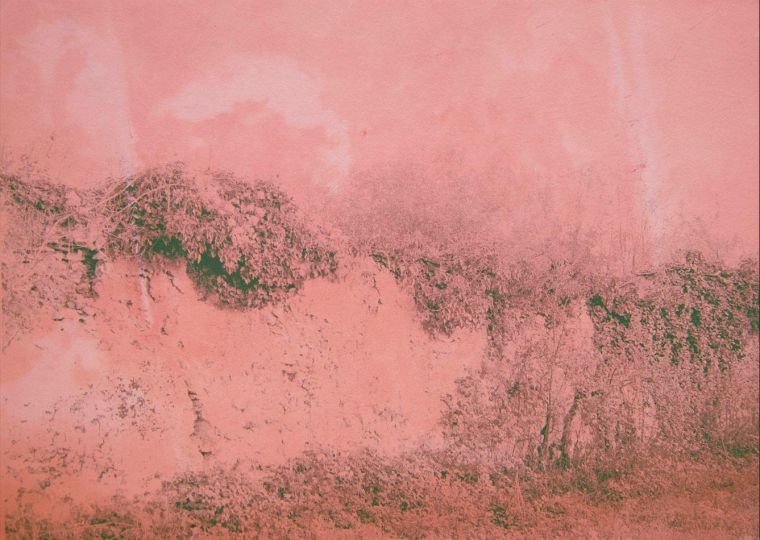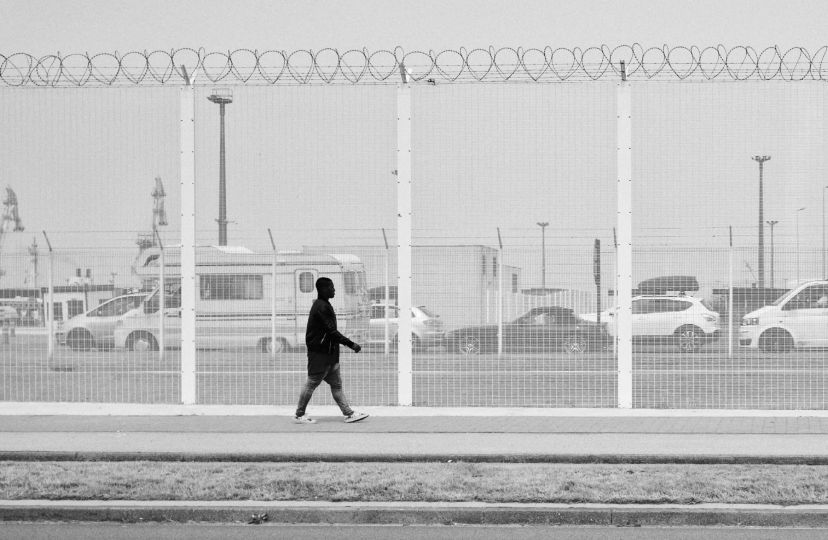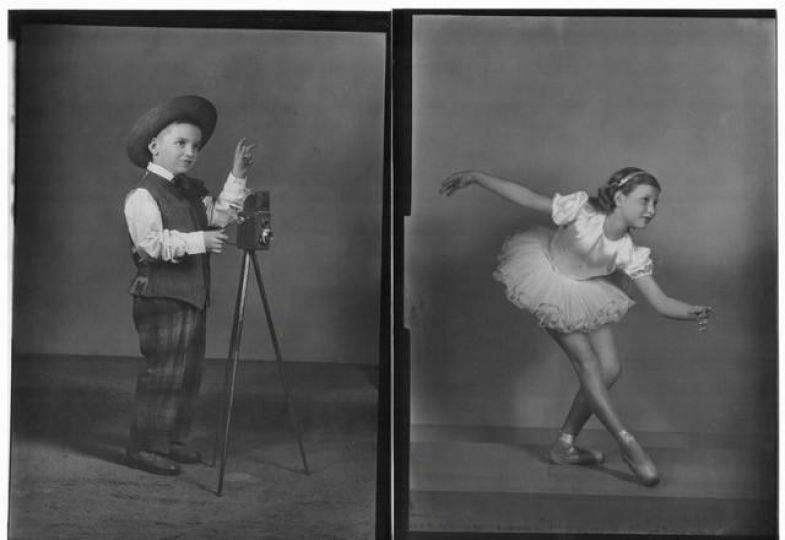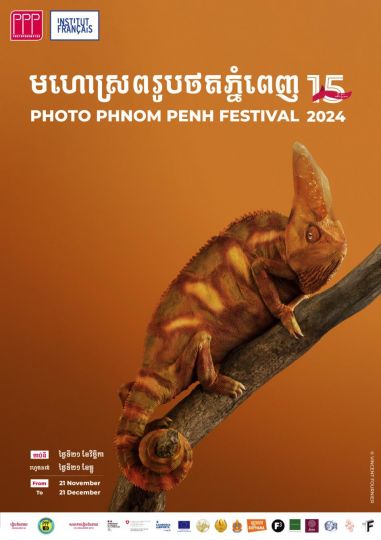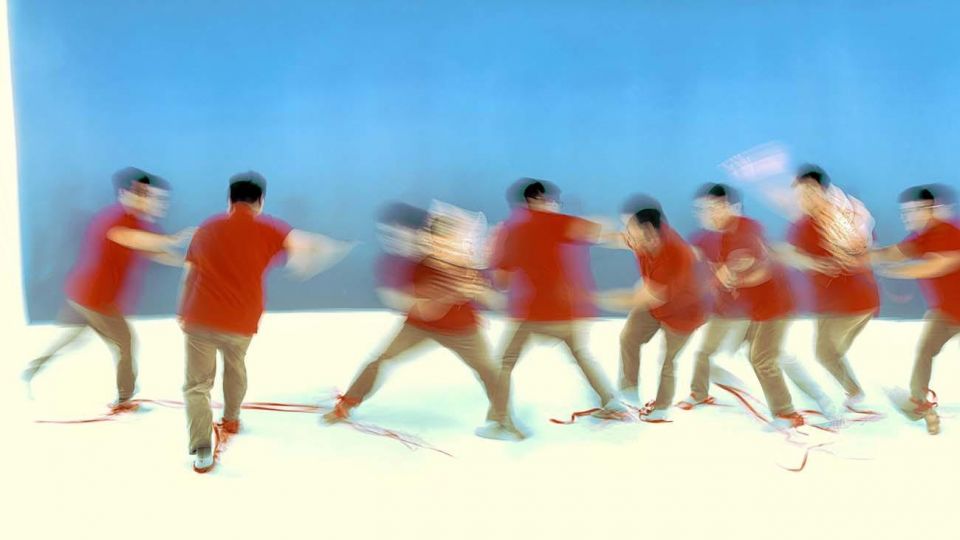The body of our mother. The one who carried us, gave birth to us, cradled us, guided us through life. The one whose form our own body imitates a little more each day, obeying the unsettling laws of filiation. The same one who will one day leave us, disappear forever. What will remain then? How to invoke their presence?
Upon the sudden death of her mother, all that remains for Rebekka Deubner was her mother’s clothes. They are, for her, the remnants of the maternal body that was forcibly taken away. Through their scent, traces of wear, mended holes, they still carry her presence; they still push back the irreparable absence a little further.
These traces of life, the Franco-German photographer immortalized them in the darkroom, creating dozens of multicolored photograms from the clothes that particularly reminded her of her mother: “by transposing the marks of the clothing onto photosensitive paper, my mother’s presence became a kind of layering from the real body to the print. All this through the medium of clothing, which served as a sort of intermediary.” Compiled in the book “Strip,” published by September Books, these photograms, sometimes bordering on abstraction, form a negative portrait of her mother, revealed layer by layer through fabrics and seams.
The choice of photogram was imposed by the strength of the subject. The sensory nature of this technique led Rebekka Deubner to touch the clothes, manipulate them to place them on paper, abolishing the boundaries sometimes imposed by the photographic apparatus: “The camera would have been too much for this project. In the darkroom, all the work is done sensorially, groping. I loved this experience. It was a moment I could share with my mother, whom I summoned through her clothes”
This darkroom work goes hand in hand with performances, the sequences of which are reproduced in the book. We see the photographer put on her mother’s clothes, reactivating them with the usual gestures that she used to do while diverting them from their original purpose, such as buttoning different shirts together. The performance was essential to her because it allowed her to integrate her own body into the process: “During the period following my mother’s death, I felt the strong presence of my body. I lived this shock and the uncontrollable nature of grief very physically. I also realized that what remained of my mother’s body was also mine”
Like the layering mentioned by Rebekka Deubner, “Strip” is a work with multiple layers of interpretation: a poetic tribute to her mother as much as a photographic and experimental “grief journal,” it is above all an opportunity for a final encounter, a farewell inscribed in light and color.
Zoé Isle de Beauchaine
Rebekka Deubner — Strip
Published by September Books
Design: François Santerre
210 x 270 mm, 72 pages
200 copies
35 euros
Available in good bookstores and online.


